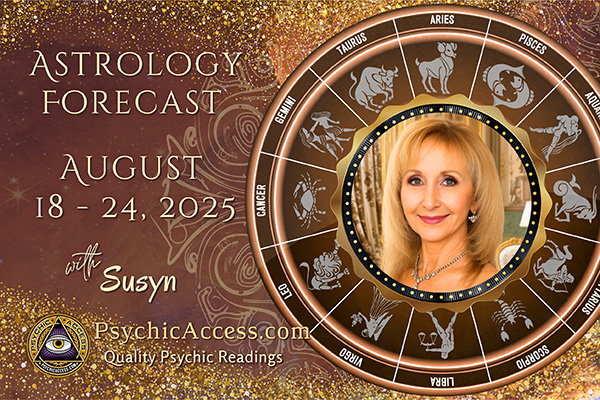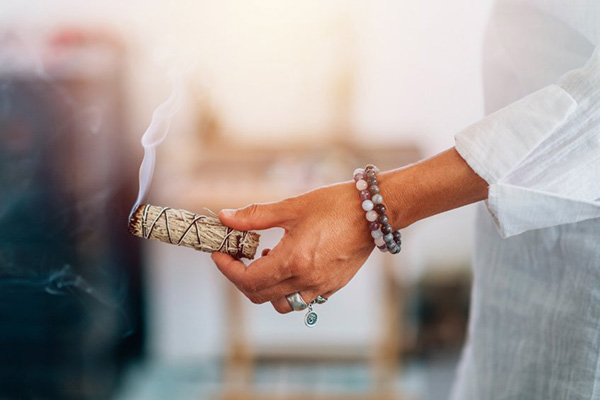 I have never considered myself as a medium, yet occasionally I do receive messages from those who have passed on. These messages have always come from individuals I have personally known and cherished. However, for others, they can only connect with me if they make their presence known and permit me to tap into their energy.
I have never considered myself as a medium, yet occasionally I do receive messages from those who have passed on. These messages have always come from individuals I have personally known and cherished. However, for others, they can only connect with me if they make their presence known and permit me to tap into their energy.
One of the most frequently posed inquiries from clients wishing to reach out to a departed loved one is often, “Are they happy?”
Due to the misconceptions that can arise regarding death and what occurs when someone transitions, I have felt compelled to clarify what I have learned over the years.
When an individual is nearing the moment of transition, even under unexpected circumstances like an accident or homicide, there exists that fleeting instant when their guardian angel is present, guiding them by the hand to show them the way. It will be alright, and everything is magnificent beyond the veil.
If you are ever with someone close to this transitional moment, even if they are in a comatose condition, observe their expression.
Often, you might witness them smiling and a glow emanating from their facial area. This signifies the arrival of their angel. At that precise instant, they find peace with what is about to transpire.
When someone departs, the physical body ceases to exist, but the spirit continues eternally. The soul does not perish or vanish; it merely exists. The spirit, indeed, all spirit, embodies 100% unconditional love. When the spirit exits the physical realm, there is no suffering, no animosity, no fury, no bitterness. Nothing negative lingers. Only love remains. Unconditional love.
Life is everlasting and love is eternal; And death is merely a horizon, And a horizon is nothing more than the limit of our sight ~ Rossiter W. Raymond
Children occasionally inquire whether their deceased parents feel ashamed or proud of them. Since only love exists, how could they feel shame?
Upon losing someone, remember that their energy remains with you and surrounding you. You can access it whenever you truly need to experience it. You may not recall everything, but they are present.
Sometimes, they might cause your car not to start, protecting you from an accident. They might make your alarm clock fail to ring, leading you to be late, again to avert some disaster. They may prompt a restaurant order to be sent back because the initial preparation was flawed, ensuring you don’t get sick.
They do not eliminate every negative event in your life, but they often provide support in your daily activities, simply to express their love for you.
I lost my stepson to suicide several years ago. When his wife and two young sons were traveling for a vacation, their vehicle unexpectedly sputtered. They had to pull over and tried to determine the issue, but there was actually nothing wrong.
Frustration set in as they wanted to reach their vacation spot, yet there was literally nothing they could do to resolve it. Not long after, the vehicle started again, as if all was well.
Just a few miles down the road, a fatal crash had occurred. Had their van not failed, they would have been caught in a multi-vehicle accident. He was there for them without them even asking.
During moments of quiet meditation, my necklace tends to roll up and down my neck. It’s rather bothersome since I’m attempting to attain a state of peace. But that’s actually my father being mischievous. I simply chuckle and say, “Hello dad!” and it stops.
Spirits appreciate recognition. Hence, when something occurs, just engage with the loved one who comes to mind. They are attuned to you. They are loving you, and even if there were disputes during physical existence, they now love you with 100% unconditional love.
In sorrow we must journey, but not in despair. Behold! we are not forever bound to the cycles of the world, and beyond them lies more than memory ~ J.R.R. Tolkien
Our departed loved ones continue to be closely tied to us: observing, guiding, and providing their unconditional love. Through signs, synchronicities, and subtle supernatural phenomena, they remind us that love is greater than this life. Here are some of the numerous significant ways spirit might reach out to you in your day-to-day existence:
Books & Articles
When a book or article unexpectedly opens to a certain passage that perfectly addresses a question you had just contemplated, it may feel more than coincidental. This is frequently perceived as a direct message from a loved one seeking to comfort you or provide guidance. It’s a gentle yet specific means for them to communicate with you.
Birds & Butterflies
Butterflies and specific birds, notably cardinals and blue jays, are commonly seen as emissaries from the spiritual realm. A butterfly landing on you or a cardinal appearing at a pivotal moment can feel like more than mere chance. Their unusual behavior or timely arrival may feel like a direct greeting from your loved one, extending a moment of hope and connection.
Small Coins
Finding dimes, pennies, or other small coins repeatedly in surprising places is often interpreted as a sign from a loved one. The specific coin may be a subtle symbol or simply a means for them to leave a material sign of their presence. It’s a sweet, personal touch meant to remind you that they are thinking of you and sending you a small token of their affection.
Profound Peace
An inexplicable and deep sense of peace that envelops you during difficult or emotional times can signify a spirit’s presence. This profound tranquility often arrives unexpectedly, providing a sudden wave of calm and comfort. It feels as though they are enfolding you in their love, assuring you that all will be well.
Inner Guidance
A strong intuitive impulse or a deep inner understanding that seems to originate from an external source may signify that a spirit is guiding you. This sensation can be particularly intense when facing a tough decision, as if a loving hand is directing you toward the right choice. This serves as a subtle yet powerful reminder of their continued influence and support in your journey.
Feeling Presence
An unexpected, unexplainable sensation of a gentle touch, warmth, or an overwhelming sense of solace can be indicative of a spirit’s presence. This feeling often emerges during moments of loneliness or difficulty, as though they are enveloping you in their love. This intimacy offers a comforting sense of peace.
Finding Feathers
Discovering a feather, particularly in an unexpected location, is often regarded as a gentle sign from a cherished loved one who has passed on. These feathers are thought to convey a message of peace, assuring you that the spirit is safe and with you. This serves as a comforting reminder that you are not alone on your journey.
Flickering Lights
Spirits are believed to manipulate electromagnetic energy to gain our attention. This may present as lights flickering, appliances switching on spontaneously, or radios abruptly changing tunes. While logical explanations may exist, these occurrences can feel especially significant during moments of quiet reflection, suggesting that a spirit is trying to announce their presence.
Mediumship Messages
Loved ones often rely on mediums to convey a clear, personalized message during readings. These messages frequently carry specific information and guidance that a medium wouldn’t ordinarily know, affirming the connection. This can be an impactful and direct way to receive comfort and solace from your loved one.
Moving Objects
When you misplace a treasured item only for it to suddenly appear in a prominent spot, or if an object tied to a loved one mysteriously shifts, it can represent a subtle sign. These slight pranks or helpful nudges, referred to as “apports,” may be a playful manner for a spirit to show their continuing presence. It’s a gentle reminder that they remain part of your life, looking out for you.
Orbs & Lights
Orbs and flashes of light are often seen in photographs or briefly glimpsed from the corner of your eye. These are believed to represent the energetic signatures of spirits, serving as an encouraging and tangible sign of their presence. These light bursts can feel like a flicker of their energy, a brief hello from the other side.
Repeating Numbers
Encountering the same sequence of numbers repeatedly, such as 111, 444, or your loved one’s birth date, can indicate a message from the spiritual realm. These “angel numbers” are thought to carry special meanings and are frequently interpreted as a way for spirits to signal their proximity and offer guidance. Observing these numbers can serve as a reassuring sign that they are watching over you.
Hearing Voices
Distinctly hearing your name or a soft whisper of a deceased loved one’s voice during a quiet moment can be a powerful and unmistakable indicator. This isn’t mere imagination; it’s a clear communication aimed at capturing your attention and offering comfort. This can be a deeply grounding experience, affirming that their energy remains close and connected to you.
Pet Behavior
Pets often exhibit heightened sensitivity to the spiritual realm, and their actions can signal that a spirit is near. You might notice your dog gazing intently at an empty corner or your cat lingering in a space associated with your loved one. This atypical behavior can serve as a comforting sign, indicating that your loved one’s spirit is visiting and that your pet recognizes their presence.
Songs & Music
It’s a common occurrence to hear a significant song or a favorite tune of a deceased loved one on the radio or while shopping, precisely at the right moment. This happens often when you’re feeling down or thinking about them, causing the song to feel like a perfect message of comfort. It can seem like a well-timed wink from beyond, signifying that they are thinking of you too.
Synchronistic Occurrences
Synchronicities or meaningful coincidences arise when perfectly timed events coincide with your thoughts of a loved one. For example, you might be reflecting on someone and then hear a stranger say something that mirrors your thoughts. These moments are viewed as the universe aligning to convey a message from beyond, reaffirming an enduring connection.
Temperature Changes
A sudden, localized chill or warmth in a room without an apparent cause can sometimes indicate spirit visitation. It is believed that spirits draw energy from their environment, resulting in these temperature variances. This might feel like a brief cold breeze as they pass through or a warm sensation as they offer a comforting hug.
Uncanny Timings
Have you ever thought of a loved one just before someone brings them up or before encountering a related sign? This uncanny timing often strongly suggests the presence of a spirit. These timely occurrences can feel like direct proof of your connection, as if they resonate with your thoughts and reach out to you.
Unexplained Scents
The sudden, unaccounted aroma of a loved one’s perfume, favorite dish, or even tobacco can serve as a deeply personal indication. These scents frequently manifest when you’re reminiscing about them or feeling sorrowful, acting as a comforting reminder of their proximity. This sensory event can create the impression that they are right next to you, providing solace and support.
Visitation Dreams
Visitation dreams are potent, vivid experiences where you genuinely sense a deceased loved one is present with you. Unlike typical dreams, they often feel incredibly real, leaving you with a profound sense of peace and clarity. In such dreams, the loved one may speak directly to you, provide comfort, or simply engage to reassure you that they are well, delivering a deeply healing message.
These signs are soft whispers from the spiritual realm: sacred reminders that we are never truly isolated. Trust your intuition, stay open, and express gratitude when you sense their closeness.
|
 About The Author: Sheri About The Author: Sheri
Sheri is an international psychic and angel reader who provides insightful answers on finances, careers, relationships, manifesting dreams, and navigating life’s challenges. Since 2004, Sheri has owned an International Spiritual Healing Center where she operates her Reiki practice – either working with clients directly or teaching Usui Reiki levels. She utilizes her office for readings conducted via mail, phone, chat, or live. Since 2008, she has refined her abilities on various psychic service platforms, where she has offered readings through phone, chat, or email. She is also involved with a spiritual network for individuals who have experienced devastating losses, drawing on her own personal experiences with such tragedies. Sheri’s work is recognized as genuine, compassionate, and transformative, aiming for her clients to elevate to higher levels of spirituality and growth, ultimately contributing positively to the world. You can receive a psychic reading from Sheri at PsychicAccess.com.
|
Unconditional love is a topic frequently explored in spiritual teachings and practices. It represents a form of love that is not contingent on any conditions or expectations. Rather, it is a pure and encompassing love that is offered freely and without judgement.
In spirituality, unconditional love is regarded as the highest expression of love, as it transcends ego limitations and connects us to a greater power or universal energy. It is a love that remains unconditional, immutable, and eternal.
A key teaching in numerous spiritual philosophies is that we are all interconnected through this unconditional love. It implies that every individual is worthy of love and compassion, regardless of their flaws, mistakes, or imperfections.
When we are able to access this unconditional love, we can release our judgments and expectations, choosing instead to embrace ourselves and those around us with kindness and understanding. This kind of love allows us to recognize the inherent goodness within all beings, promoting acts of compassion and respect.
Incorporating unconditional love into our daily lives can significantly affect our relationships, mental and emotional well-being, and overall fulfillment and sense of purpose. By approaching others with love and kindness, we can forge deeper connections and foster a spirit of unity and harmony.
It’s crucial to acknowledge that unconditional love does not obligate us to accept harmful or toxic behavior. It involves establishing healthy boundaries and practicing self-care while simultaneously holding space for others with love and compassion.
In summary, grasping the significance of unconditional love in spirituality promotes a deeper sense of connection, compassion, and empathy toward ourselves and others. By embodying unconditional love, we can nurture a more harmonious and loving environment for all beings to flourish. Continue reading →















